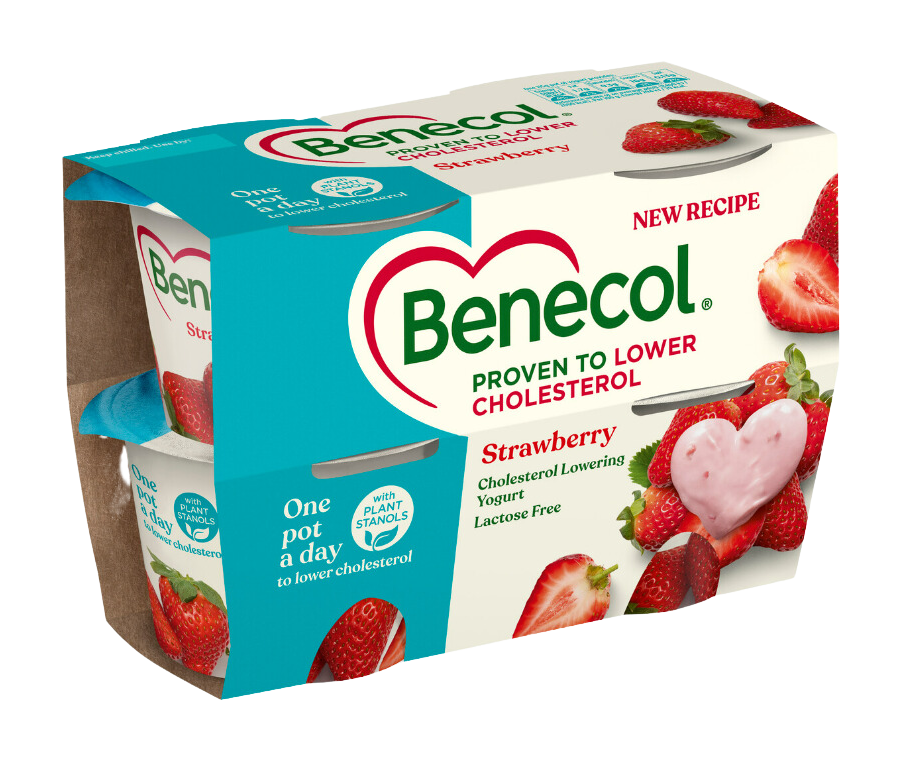Benecol HCP - IE
Plant stanol ester has been shown to lower cholesterol. High cholesterol is a risk factor in the development of coronary heart disease.
This site is only meant for healthcare professionals.
Patients that can benefit from Benecol
International guidelines consistently recommend the use of plant stanol ester, the functional ingredient in Benecol® foods, as part of the management of raised cholesterol. The 2019 joint European Atherosclerosis Society (EAS)/European Society of Cardiology (ESC) guidelines define the three target groups for plant stanol ester use as:1
When helping your patients to manage their cholesterol, recommending they add Benecol foods or food supplements containing plant stanols to their diets can help them lower their LDL-C levels.2
Meet Sarah, a 39-year-old sales manager. Sarah doesn’t smoke and she leads a moderately physically active lifestyle. At a recent health check, she found out that she had elevated blood LDL-C.
Meet Bob, a 46-year-old teacher. Bob was diagnosed with type 2 diabetes and hypercholesterolaemia at a routine health check four years ago.
Meet Minnie, a 7-year-old girl who likes to play football. Minnie was recently diagnosed with familial hypercholesterolaemia.
Benecol’s range of products means there’s an option to suit every taste. The range includes spreads, yogurts and drinks in a variety of flavours so that Benecol can be enjoyed in many different ways.

Having just one Benecol yogurt drink (containing 2 g plant stanols) per day with a meal can help reduce LDL-C levels in as little as 2–3 weeks.2 Benecol yogurt drinks come in a range of flavours, including dairy free and no added sugar options.

Benecol spreads can be used as a substitute for butter or other spreads. Benecol spreads come in a range of flavours and fat content, and some can be used in cooking. The recommended amount to consume is 2 g plant stanols a day, which is equivalent to 30 g of spread.

Benecol’s 4-pack yogurts are a convenient way to add plant stanol ester to the diet. Each yogurt contains 2 g of plant stanols. Just one yogurt per day, as part of breakfast or after a meal, can help reduce cholesterol levels in as little as 2–3 weeks.2